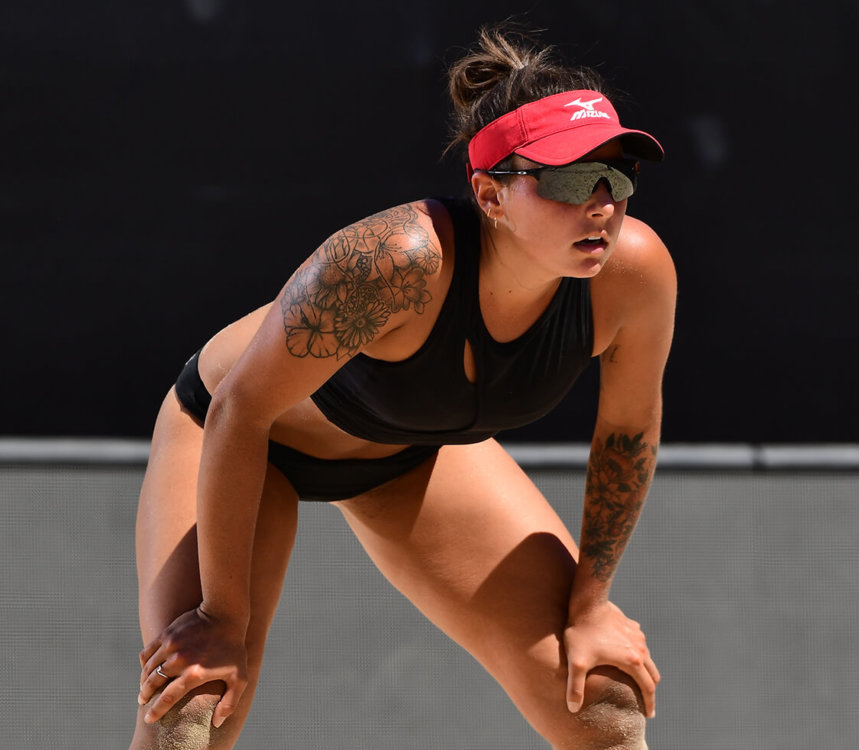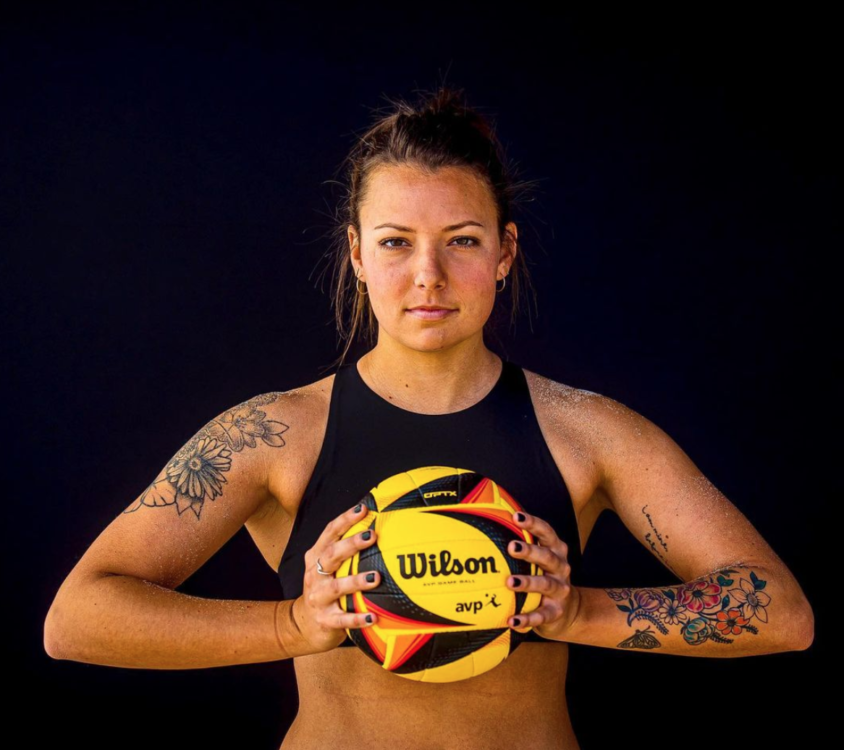Trigger warning: This series of articles will touch on sensitive topics, specifically regarding disordered eating and negative body image. Please proceed with caution and grace for yourself and your peers if you decide to continue reading.
In this third and final installment of Molly Turner’s road to recovery from an Eating Disorder, we talk a lot about the rigor and hardships of the beach volleyball world. I want to say – I love this world. I’m proud to be a part of it. I appreciate that women are paid equally and encouraged to choose what they wear. It’s a beautiful community full of admirable athletes and fans, with a healthy dose of weird.
But it’s hella hard to play this sport sometimes. Our bodies are on display, bearing more skin at my job than my middle school self could have handled. We’re performing in front of crowds in bikinis; I don’t have to tell any woman how potentially horrifying that is.
There are myriad expectations, both internal and external. Athletes are thought to look a certain way – tall, slim, muscular – not by any one person or institution, but by our culture as a whole. The voice starts from the outside, and before we know it, it’s speaking from inside us. Be skinnier. Build muscles. Eat less or healthier or at certain times. Look like that girl over there; she’s finishing higher and has more sponsors because she looks better than you.
It’s said that comparison is the thief of joy. I agree, especially when it’s so layered. Comparison in the beach world is body image, financial success, and professional goals – three of the most primal human worries. Comparison plagues men and women alike, but women definitely claim the lion’s share of negative body image.
Molly Turner is one of these women, and she’s very vocal about her personal journey. It’s important to me to let Molly’s voice dominate the rest of this article. This is her story and told best in her words.
“We all look at each other’s bodies, and we compare,” Molly says. “It’s hard not to because we’re being fed a cultural norm to aspire to. It’s why when in the deepest part of my eating disorder in 2019, I looked in the mirror and thought I was a fraud. I didn’t think I looked like what an athlete should look like. But who made those rules? It doesn’t make sense.”
And like many people, these feelings of self-doubt intensify when looking at photos. “I have a really hard time because everything in our sport is documented. And looking back to the 2019 season, I see a lot of sadness. I wish I could go back. I mean, to be honest, I had the best season of my career, so it’s hard to have regrets. And it’s cool to acknowledge how incredible my body is – that when I was struggling and not eating enough, I could still push through and achieve some pretty crazy successes.
“But I look at those photos, and it’s hard to see how much I struggled. I still absolutely hate what I see. I’m embarrassed that I looked like that. And obviously, that’s my eating disorder talking. I can’t help but look at those photos and compare them to what I look like now. And my eating disorder is telling me I’m satisfied with what I look like now, but it also bashes what I was going through then.”
“That voice isn’t telling me the truth. It says now, ‘Hey, right now you’re doing great. But you should hate that old version of yourself. That’s not you. That’s someone ugly – someone people didn’t want to be around. I didn’t even want to be around me.’ It’s just a lot of sad memories. Which sucks because I had so much success that season.”
In 2019, Molly breached the Main Draw, earned a few Top 10 finishes, and established herself as a premier defender on the AVP Pro Tour. But those accomplishments were shrouded in the shame of what was going on behind closed doors. “There’s an element of looking back and thinking – look at how far I’ve come. But it’s a mixture of things, and it’s mostly negative, which is unfortunate. But that’s the truth, right?”
The truth. Truth is what gives Molly life and agency over her eating disorder. Remembering that her value isn’t in her weight or her performance. Knowing that when she doesn’t want to be around herself, her friends and family are yearning to get in. Those truths power Molly in her recovery in the tricky world of professional sports.

“I’m pushing that unhealthy voice out of the way. I’m feeling myself. I don’t want to brag about where I am now because that feels like shaming or backstabbing the people in my community. It’s kinda hard to be proud of myself because I don’t want to think – ‘Oh, I am so much prettier and healthier and greater and more loveable now than I was back then.’ Because that’s not the truth. I’m proud of where I am right now, both the physical and nonphysical stuff.”
Like her therapist has done for her, Molly wants to help others acknowledge and open up about their eating disorders. She’s had many people reach out via her blog or Instagram, people from all walks of life seeking advice. “I want to be a voice and help others not do what I did. Or at least to help put a different voice in their mind to try and shut that unhealthy voice out. Because if you feed it, it gets louder and louder.”
Molly uses careful language when speaking on Eating Disorders and body image because it is such a sensitive and triggering topic. “It’s probably one of the hardest things to talk about. When I talk to a girl or boy about any of this, I avoid talking about ‘good and bad’ foods. I also deeply avoid asking if someone’s hungry or why they don’t eat enough or commenting on how much they are eating. Those uncomfortable little jabs hurt me; those are triggers for me. So I avoid them when talking to others.”
“I often prompt nonphysical and mental conversations, too. Questions like, ‘Hey, where’s your head at? What else is bothering you that’s pushing you to control this part of your life?’ When I sense a loss of control in my life, I start listening to the true voice again, not the voice of my eating disorder, so I encourage others to do that. Asking those questions keeps me accountable. It’s why talking about this is so important.”

If you’re looking for help with an eating disorder, the National Eating Disorder Helpline offers live chat, call, and text support. If someone you know is battling an ED, the Center for Change offers advice for supportive actions and language.
More on Molly
Part 1: Kim’s Chat: A Conversation with Molly Turner about Body Image
Part 2: Kim’s Chat: Molly Turner on Eating Disorder Recovery